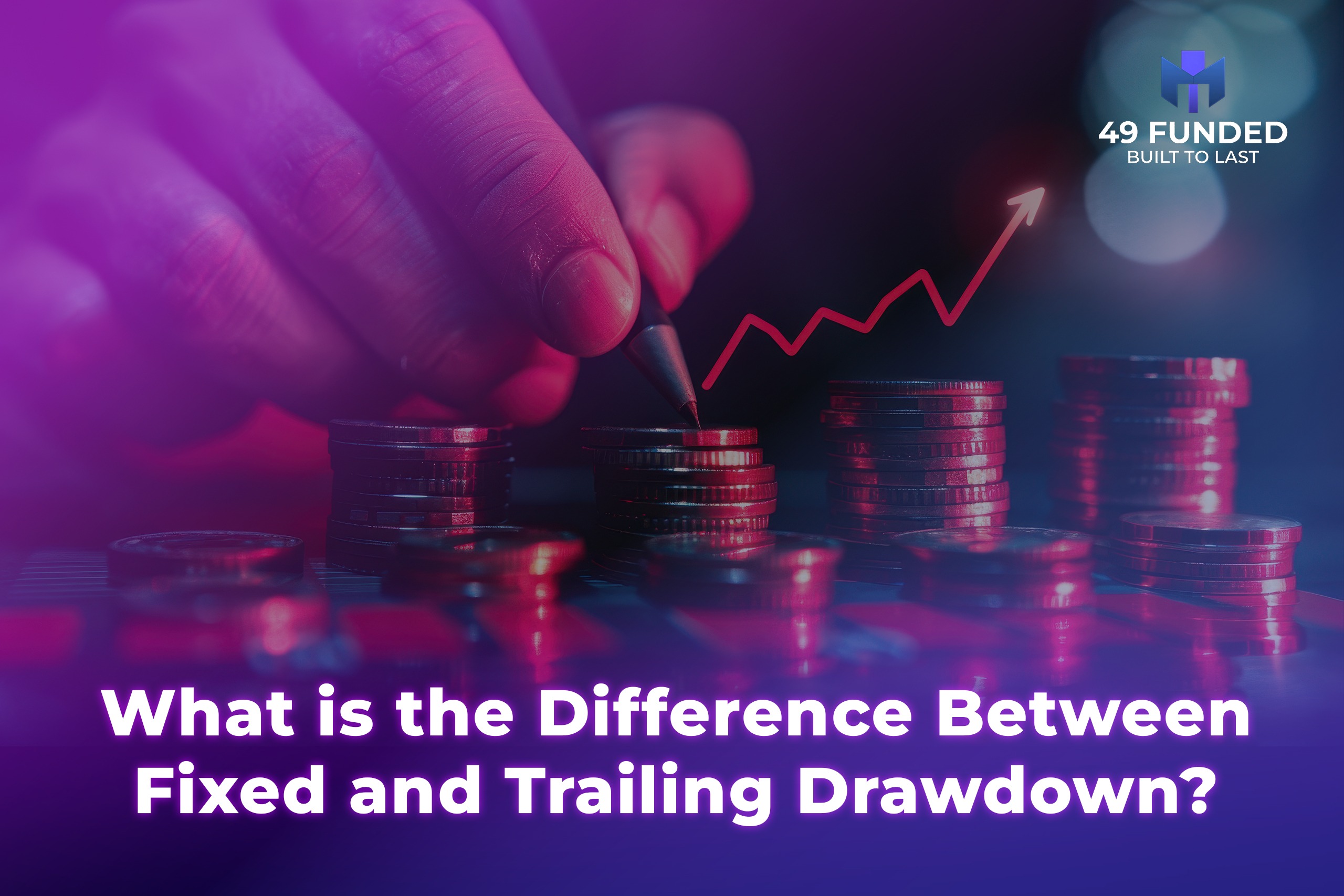Futures trading has emerged as an exciting yet complex investment avenue for traders in the Indian market. Whether you’re a beginner or looking to enhance your trading skills, understanding the mechanics of futures trading is essential. This comprehensive guide will take you through what futures trading is, how it works, and how you can start trading with a funded account in the Indian market, particularly through prop firms like 49 Funded.
What is Futures Trading?
Futures trading involves buying and selling contracts that represent an agreement to buy or sell an underlying asset (such as commodities, stocks, or indices) at a predetermined price and date in the future. These contracts are standardized and traded on futures exchanges.
Unlike spot trading, where transactions occur immediately, futures contracts are settled at a later date. Futures trading offers traders the ability to hedge against market fluctuations or speculate on the future price movements of various assets.
How Does Futures Trading Work?
In futures trading, you enter into a contract to buy or sell an asset at a future date, with the price agreed upon in advance. These contracts are traded on well-established exchanges, including the National Stock Exchange (NSE) and Bombay Stock Exchange (BSE) in India. Futures contracts can be based on a wide variety of financial instruments, such as:
Stock Index Futures – Based on a basket of stocks representing a particular index (e.g., Nifty 50, Sensex).
Commodity Futures – Based on physical commodities like gold, crude oil, or agricultural products.
Currency Futures – Based on the exchange rates between different currencies.
When you buy or sell a futures contract, you’re not physically buying the underlying asset but are instead agreeing to either buy or sell it at a later date. Traders can profit from price fluctuations by either buying low and selling high (if they are going long) or selling high and buying low (if they are going short).
Key Concepts in Futures Trading
Leverage
Futures contracts allow traders to use leverage, meaning you only need to deposit a fraction of the contract’s value to trade a larger position. This makes futures trading more attractive, as it amplifies both potential profits and losses. For instance, with a small margin deposit, you can control a large contract value.
Margin
Margin refers to the amount of money required to open and maintain a futures position. This is a good faith deposit to ensure that you can cover potential losses. In India, the margin requirements for futures contracts vary depending on the asset being traded and the exchange’s policies.
Contract Size
Each futures contract has a standardized size that represents the quantity of the underlying asset being traded. For instance, one Nifty futures contract may represent 50 Nifty index points. Understanding contract sizes is crucial for determining the total value of a trade and its risk exposure.
Expiration Date
Futures contracts come with a specific expiration date, at which point the contract must be settled. This could either be through physical delivery of the asset or cash settlement, depending on the contract terms.
Settlement
Futures contracts can be settled in two ways:
Cash Settlement: No physical delivery of the asset. Instead, the contract is settled by paying the difference between the contract price and the market price.
Physical Settlement: The actual underlying asset is delivered to the buyer of the futures contract.
Why Trade Futures in the Indian Market?
The Indian market offers a vibrant futures trading landscape. As the second-largest economy in Asia, India’s growing financial markets present abundant opportunities for traders. Some of the key advantages of futures trading in India include:
Liquidity: India’s stock and commodity futures markets are highly liquid, especially in indices like the Nifty 50 and Sensex.
Diversification: Futures trading allows traders to diversify their portfolio by adding exposure to different asset classes, such as commodities, stocks, and currencies.
Hedging Opportunities: Futures contracts serve as a useful tool for hedging against adverse price movements in an investor’s portfolio.
Low Transaction Costs: Futures contracts generally come with lower brokerage fees compared to equity trading.
Risks of Futures Trading
While the rewards of futures trading can be substantial, the risks are equally significant. Some of the key risks include:
Leverage Risk: The ability to control a larger position with a small margin can lead to substantial losses if the market moves against you.
Market Risk: Futures prices can be volatile, with large price swings in short periods of time. Sudden news or geopolitical events can also affect prices.
Liquidity Risk: In illiquid markets, it may be difficult to exit positions, leading to potential losses.
It is crucial for new traders to understand these risks and trade responsibly. One way to mitigate these risks is by starting with small positions and using risk management strategies like stop-loss orders.
How to Start Futures Trading in the Indian Market?
Here’s a step-by-step guide for anyone looking to get started in futures trading in India:
Open a Trading Account
To trade futures, you need a demat and trading account with a broker registered with the Securities and Exchange Board of India (SEBI). Choose a reputable broker that offers competitive margin rates, advanced trading platforms, and good customer support.
Understand Market Fundamentals
Before entering futures trading, you must have a good understanding of how markets work. This includes familiarizing yourself with technical analysis, fundamental analysis, and risk management strategies.
Learn about Leverage and Margins
Understanding the concept of leverage and margin is crucial for success in futures trading. It’s important not to over-leverage and to use margin cautiously to manage your risk exposure.
Paper Trade (Practice)
If you’re new to futures trading, it’s recommended to practice using a simulated trading account (paper trading) before committing real money. Many brokers offer demo accounts where you can trade with virtual funds.
Start with a Funded Account for Indian Market
One way to reduce the financial risk is by trading through a prop firm for Indian market like 49 Funded. A funded trading account provides you with the capital to trade without putting your own money at risk. In return, you share a portion of the profits with the firm. This is an excellent option for beginners who want to gain practical trading experience without the financial strain.
Why Choose a Prop Firm Like 49 Funded?
A prop firm for Indian market, such as 49 Funded, provides traders with several advantages:
Access to Capital: With a funded account, you can trade larger positions without the need for significant upfront capital.
Risk-Free Trading: Since the capital is provided by the firm, your personal financial risk is minimized, allowing you to focus more on strategy.
Skill Development: Trading with a prop firm helps you sharpen your skills and improve your trading discipline, which is essential for long-term success.
Profit Sharing: Once you generate profits, a percentage is shared with the firm, allowing you to earn without upfront investment.
To become a trader with a prop firm, you may need to complete certain evaluation criteria, including demonstrating your trading ability, risk management skills, and consistency.
Conclusion
Futures trading in the Indian market presents numerous opportunities for traders who understand the mechanics, risks, and strategies involved. Whether you’re just starting or looking to improve your trading skills, futures trading offers a pathway to financial growth. By choosing a funded account for Indian market through a reputable prop firm like 49 Funded, you can reduce the financial risks while building the necessary skills to become a successful trader.
Always remember that futures trading requires dedication, continuous learning, and a disciplined approach. By taking the time to understand the market and using tools like demo accounts and funded trading options, you can increase your chances of success in this exciting field.
If you’d like to dive deeper into futures trading strategies or need advice on how to choose the right prop firm, feel free to reach out. Stay informed, and happy trading!







